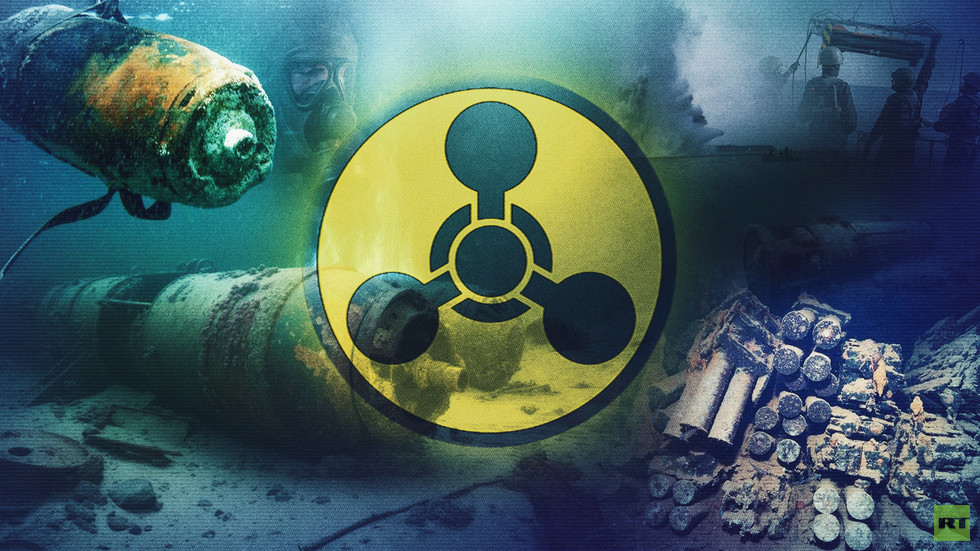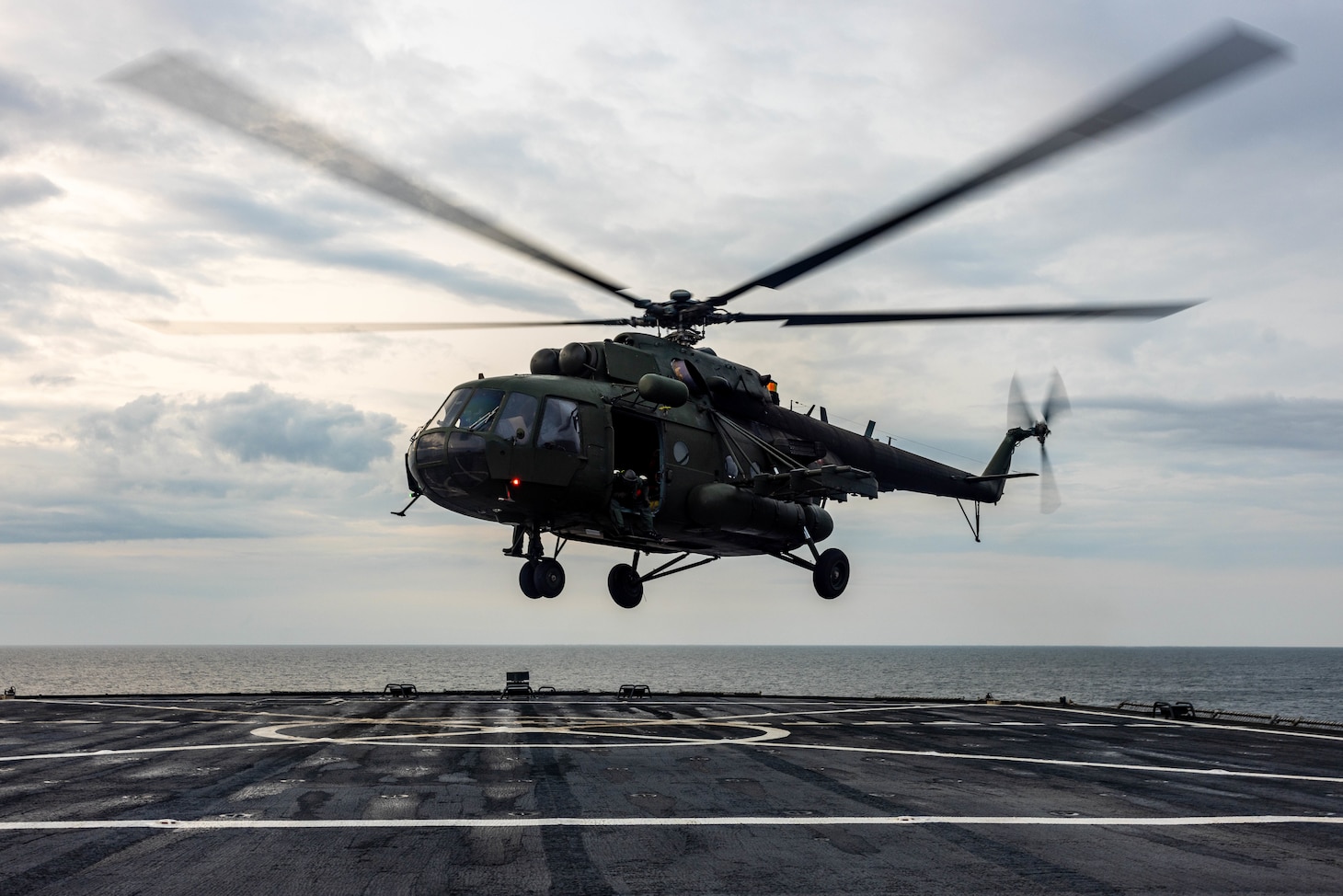EU and Southeast Asia Collaborate on Undersea Cable Protection

The world's undersea cable network, spanning approximately 1.4 million kilometers (870,000 miles), is critical as it carries over 95% of intercontinental internet traffic. However, this vital infrastructure remains vulnerable to accidental damage, such as from ship anchors, and deliberate disruption. Recent incidents in the Baltic Sea and the Red Sea have underscored these cables' fragility, prompting policymakers to stage international initiatives to safeguard the system. "We need to work together to defend the entire network," stated Singaporean Minister of Defense Chan Chun Sing at the IISS Shangri-La Dialogue, Asia's premier security forum. "There's no point trying to defend the integrity and security of a submarine cable by looking at a point. We need both ends to be secure," he added.
In February 2024, multiple cables in the Red Sea were severed when anchors from a cargo vessel, sunk by Houthi militants, dragged along the seabed. This damage caused a sharp reduction in internet capacity between Europe and Asia, disrupting everything from financial transactions to video conferencing. Concurrently, Europe has struggled with a series of similar faults in the Baltic Sea. While many Western officials have hinted that these cables were intentionally damaged by Russia-linked ships, experts caution that there is currently no definitive proof of deliberate damage. Since January, some NATO members have responded by expanding deployments of frigates, maritime patrol aircraft, and naval drones to conduct regular cable-surveillance missions across vital waterways.
Geopolitical friction also extends to subsea infrastructure in Southeast Asia. In February, Taiwanese officials detained a Chinese-crewed ship after an undersea communications cable was damaged near the self-ruled island, which China sees as a breakaway province. China has also increasingly pressured cable consortia laying new links from Japan through the South China Sea to seek Beijing's "permission," effectively doubling down on its claims in internationally disputed waters. Zachary Abuza, professor at the National War College in Washington, described this as "just another way that China is trying to assert its sovereignty over the South China Sea." Furthermore, reports from Nikkei Asia indicate China is developing "advanced cable-cutting devices capable of targeting armored cables at unprecedented depths." Beyond geopolitical threats, Southeast Asian nations are concerned about natural disasters affecting cables and potentially hindering access to new and expanded renewable energy projects, such as offshore wind farms. Investment in the submarine power cable sector is projected to reach $1.95 billion (€1.70) by 2030, according to Nikkei Asia.
Vietnam, a nation of 90 million people served by just five undersea cables, experienced a significant loss of up to 75% of its data capacity in February 2023 when all five suffered partial or total damage. In June of the same year, three of these five submarine internet cables failed again. The official cause for these disruptions remains unclear. Alexander Vuving, a professor at the Daniel K. Inouye Asia-Pacific Center for Security Studies in Honolulu, told DW that Hanoi is "cautious not to anger China" and tends to dismiss suspicions that the cables were intentionally damaged, arguing that their location in busy shipping routes increases the chance of accidental damage by fishing vessels. "However," Vuving added, "this argument leaves unanswered the question of why the rate of incidents rose sharply in recent years." Vietnam aims to add up to four new cables in the coming years to significantly boost connectivity speeds and power supply as it looks to progress into higher-end, tech manufacturing. Hanoi has encouraged Vietnamese telecom companies to spearhead this move, but these firms are seeking outside investment, mainly from China and the US. "Many in Vietnam see this as a no-win situation as they do not want to be dependent on either China or the US and certainly do not want to get entangled in the US-China competition," Vuving explained to DW. "European companies can help Vietnam escape this Catch-22 situation. The same can be said regarding other countries in Southeast Asia."
In response to these growing concerns, the European Union is focusing on "cable diplomacy." France's Alcatel Submarine Networks is often regarded as the global leader in subsea cable installation, and several European firms operate sizable fleets of cable repair ships. In February, the EU published its Action Plan on Cable Security, which called on Brussels to "develop and deploy an advanced cable diplomacy." The plan stated that "When it comes to addressing incidents, the [EU] should enhance the exchange of information with, for instance, Indo Pacific partners who are facing similar incidents in relation to critical submarine infrastructures." Soon thereafter, Henna Virkkunen, the European Commission's executive vice president in charge of security, announced that almost €1 billion is being redirected in the EU's budget to boost surveillance of undersea cables and establish a fleet of emergency repair vessels.
However, the extent to which Europe can effectively support Asia in this domain is a subject of debate. Joshua Kurlantzick, senior fellow for Southeast Asia at the Council on Foreign Relations, told DW that "While Europeans could help build more undersea cable architecture for Southeast Asia, China already dominates the undersea cable network in the region." He argued that "It would take a massive and very costly effort by Europe to come anywhere near supplanting China's cable network, and I don't think Europe can afford that." Moreover, there could be pushback from the US, which appears to increasingly believe that Europeans should disengage from the Indo-Pacific region. Speaking at the Shangri-La Dialogue summit, US Secretary of Defense Pete Hegseth argued that European states should limit their engagement and investments in regions like Southeast Asia to focus entirely on safeguarding Europe. Kaja Kallas, the EU's foreign policy chief, pushed back a day later, arguing that "it's an illusion that these security theaters of Indo-Pacific and Europe are not interlinked." She called for Europe and Asia to collaborate against covert "shadow fleets" and review maritime security laws to protect submarine cable networks.









